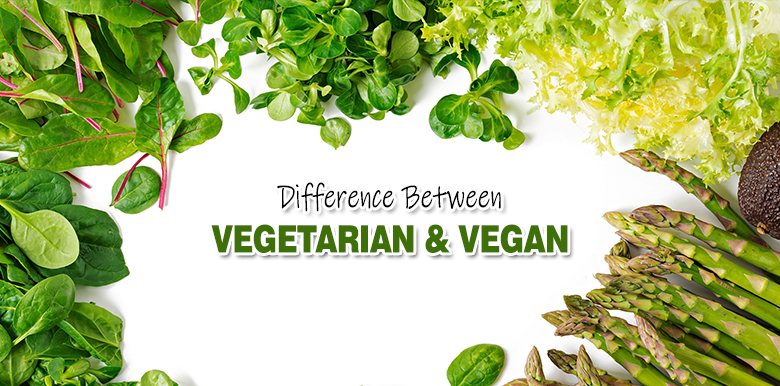A vegetarian is someone who does not eat meat or consume any kind of animal product. They exclude meat, poultry and even seafood from their diet, however they may go on to consume dairy products such as milk and eggs.
TYPES OF VEGETARIAN DIETS –
When people think about a vegetarian diet, they typically think about a diet that doesn’t include meat, poultry or fish. But vegetarian diets vary in what foods they include and exclude:
1. Lacto-vegetarian – Lacto – vegetarian diet exclude meat fish, poultry and eggs, as well as foods that contain them. Dairy products, such as milk, cheese, yogurt and butter, are included.
2. Ovo-vegetarian – Ovo- vegetarian diets exclude meat, poultry, seafood and dairy products, but allow eggs.
3. Lacto-ovo vegetarians – Lacto – ovo vegetarian do not consume red meat, white meat, fish or fowl. However, lacto-ovo vegetarians do consume dairy products and egg products. This is the most common type of vegetarian.
4. Pescatarian (Pescetarian) – While technically not a type of vegetarian, these individuals do restrict their meat consumption to fish and seafood only. Pescatarians do not consume red meat, white meat or fowl.
5. Pollotarian – Much like the pescatarian, this “semi-vegetarian” diet restricts meat consumption to poultry and fowl only, and is not officially considered a vegetarian. Pollotarians do not consume red meat or fish and seafood.
6. Flexitarian – A plant-based diet with the occasional meat item on the menu. These folks do their best to limit meat intake as much as possible and they have an almost entirely plant-based diet. This is not technically considered a “vegetarian” diet, but we commend the effort!
Vegan diets exclude meat, poultry, fish, eggs and dairy products — and foods that contain these products.
Whereas, vegans avoid meat, poultry and seafood but they take a step ahead by not consuming milk, eggs, honey or any product/by-product made from animal/ animal skin. They may also avoid any fabrics that are made from animal byproducts, including wool and silk, because the animals used to produce these materials are often harmed in the process. Many vegans also look for cruelty-free cosmetics and beauty products.
Nutritionally speaking, omitting more animal foods can make it challenging to meet the needs for certain nutrients, such as vitamins D and B12, iron, zinc, and calcium. However, it is possible to obtain all of the necessary nutrients on a vegan diet if you are knowledgeable about which plant foods contain key nutrients and how to supplement properly if needed.
TYPES OF VEGANS DIETS –
1. Ethical – Vegans believe in ending the exploitation of animals, which is why veganism often expands into lifestyle choices such as avoiding cosmetics with animal ingredients, or that are tested on animals, wearing wool, silk and leather, or visiting zoos and aquariums.
2. Plant based – Some people chose to follow a vegan diet for health reasons or to lose weight, without engaging with the troubling ethics. For this reason they may choose the label “plant-based”, as they continue to use animal products such as leather, silk, and honey.
3. Raw – Raw vegans chose not to eat anything cooked or heated up, so this diet mainly consists of fruit, vegetables, nuts, seeds and grains. Some may choose this diet for health benefits. Others choose the diet for spiritual reasons, looking to recreate a new Eden.
4. HCLF – High carb low fat (HCLF) vegans will eat huge quantities of carbs in the form of fruit, vegetables and grains, and as little fat as possible. HCLF has various options depending on what the individual is looking for in the diet.
5. Environmentally concious – More people are trying to make changes in their daily lives to better take care of our planet. Mass consumption of meat and dairy puts a lot of pressure on the environment. The space needed to home animals has resulted in huge areas of deforestation.
THE CORE DIFFERENCE –
Vegans eat no animal products, while vegetarians don’t eat animals, but may eat products that come from them (such as dairy and eggs). People typically choose these diets because of health concerns, religious restrictions or moral concerns about harming animals.
Although all vegans tend to follow the same set of clear cut guidelines – eat nothing that came from an animal.
Vegetarians and vegans often avoid eating animal products for similar reasons. The largest difference is the degree to which they consider animal products acceptable.
For instance, both vegans and vegetarians may exclude meat from their diets for health or environmental reasons.
However, vegans also choose to avoid all animal by-products because they believe this has the largest impact on their health and the environment.
In terms of ethics, vegetarians are opposed to killing animals for food, but consider it acceptable to consume animal by-products such as milk and eggs, as long as the animals are kept in adequate conditions.
On the other hand, vegans believe that animals have a right to be free from human use, be it for food, clothing, science or entertainment.
Thus, they seek to exclude all animal by-products, regardless of the conditions in which animals are bred or housed.
The desire to avoid all forms of animal exploitation is why vegans choose to forgo dairy and eggs — products that many vegetarians have no problem consuming.
